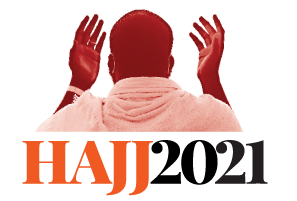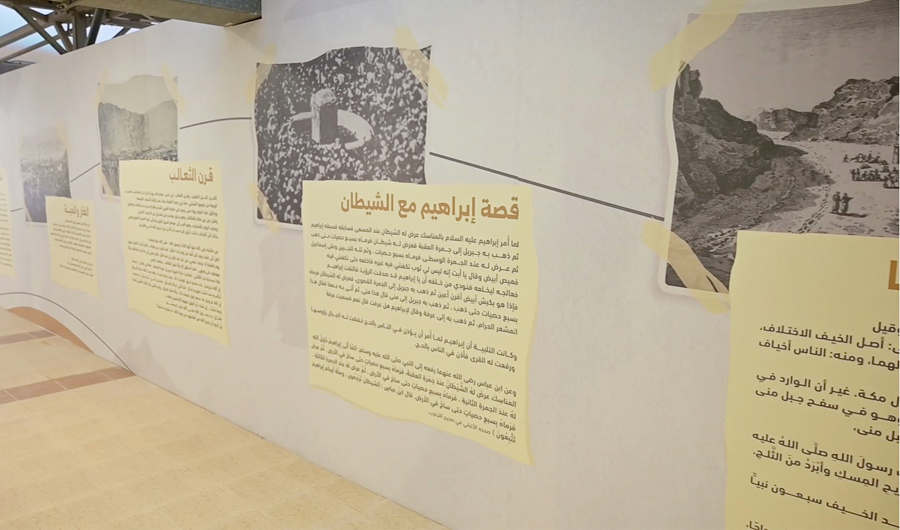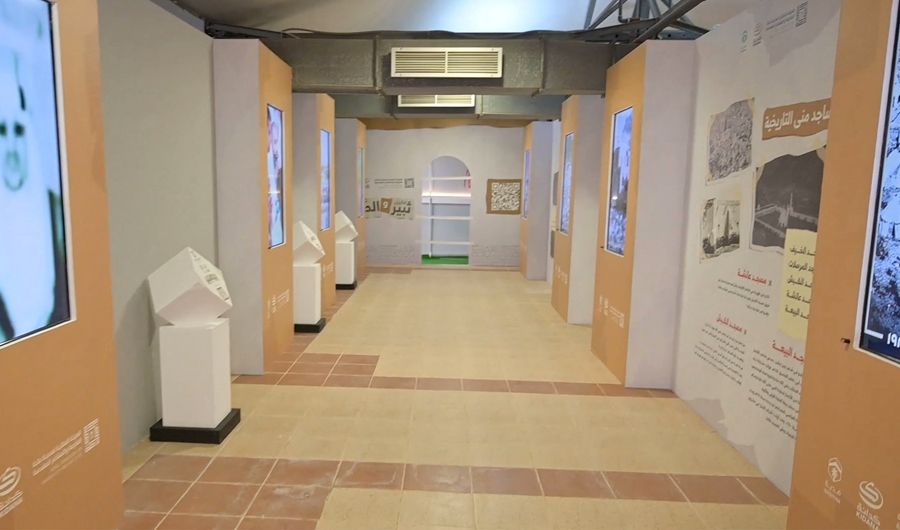 MINA: For many, the origin of Islamic names is a mystery. The history behind the names of towns — such as Mina and Arafat — has escaped many Arabs. To fix this, the Royal Commission for Makkah City and Holy Sites has launched a new exhibition to enrich Muslims’ knowledge about various locations of Islam’s birthplace.
MINA: For many, the origin of Islamic names is a mystery. The history behind the names of towns — such as Mina and Arafat — has escaped many Arabs. To fix this, the Royal Commission for Makkah City and Holy Sites has launched a new exhibition to enrich Muslims’ knowledge about various locations of Islam’s birthplace.
The “Between Thabeer and Al-Sabeh” exhibition was opened on Tuesday and welcomed hundreds of pilgrims hoping to learn more about the places that have long been associated with their religious rituals.
For its project, the commission has worked closely with the Hadiya Charity Association (Hadiya). Its translation coordinator and former dean of the college of languages and translation at Abha’s King Khalid University, Dr. Abdullah Al-Malki, told Arab News that the name “Mina” came from the Arabic term “Al-Muna,” plural of “Omniah,” which means “wish.”
“When the Angel Gabriel wanted to leave Adam, he asked to make a wish (Omniah). Adam wished for Paradise. The place was then called Mina, plural of Omniah. There are other narratives which have different claimed explanations for the meaning,” Al-Malki said.
HIGHLIGHTS
• The name ‘Mina’ came from the Arabic term ‘Al-Muna,’ plural of ‘Omniah,’ which means ‘wish.’ When the Angel Gabriel wanted to leave Adam, he asked to make a wish (Omniah). Adam wished for Paradise. The place was then called Mina.
• The exhibition also presents the story of the Prophet Abraham with the devil, who tried to trick the prophet into disobeying Allah’s order to kill his son Ishmael.
Al-Malki added that visitors can also learn about the 70 prophets who have passed the valley of Mina. “Mina is a valley alongside of which there are two mountains, Thabeer and Al-Sabeh, and it is believed that some 70 prophets have passed through this place, wearing white woolen garments.”
The exhibition also presents the story of the Prophet Abraham with the devil, who tried to trick the prophet into disobeying Allah’s order to kill his son Ishmael. “The heavenly order was just to test Prophet Abraham’s faith.”
Al-Malki said that the exhibition teaches its visitors how the Quranic surah of Al-Mursalat was revealed in a cave in Mina.
For the history of “Arafat,” Al-Malki said this place earned its name because Adam and Eve knew each other in Arafat. “In Arabic, the word ‘araf’ means ‘knew’ in English.”
He added that it is important that pilgrims and ordinary people learn about the history of these places because they are central to Arab civilization.
Al-Malki pointed out that the exhibition, which is being held for the first time, includes 10 sections where visitors can learn more about Al-Masha’er and what services the Saudi kings have offered to contribute to the development of key historical Islamic sites.
“The care and unlimited spending of the leaders of this county — beginning from the late King Abdul Aziz and his sons, to the era of King Salman and Crown Prince Mohammed bin Salman — have made these places a source of pride for us all through the giant projects that have been implemented here,” he said.
He added that their efforts have also made the mountains and valleys secure and safe places.
“All the historical information about Mina — its water wells, mosques, and mountains — can all be discovered here under one ceiling,” he said, adding: “We are also broadcasting digital materials and pictures with detailed information about the landmarks of the holy sites to enrich the pilgrims’ experience.”
A similar exhibition called “Alsakhrat” was also opened in Arafat to provide pilgrims with historical information about the site. However, the two exhibitions were combined into one in Mina, where the pilgrims are present during the Days of Al-Tashreeq, on which they carry out their “stoning of the Devil” rite.
Pilgrims can also scan an iQR code to visit the exhibition’s multi-language website to read more about the holy places.





























